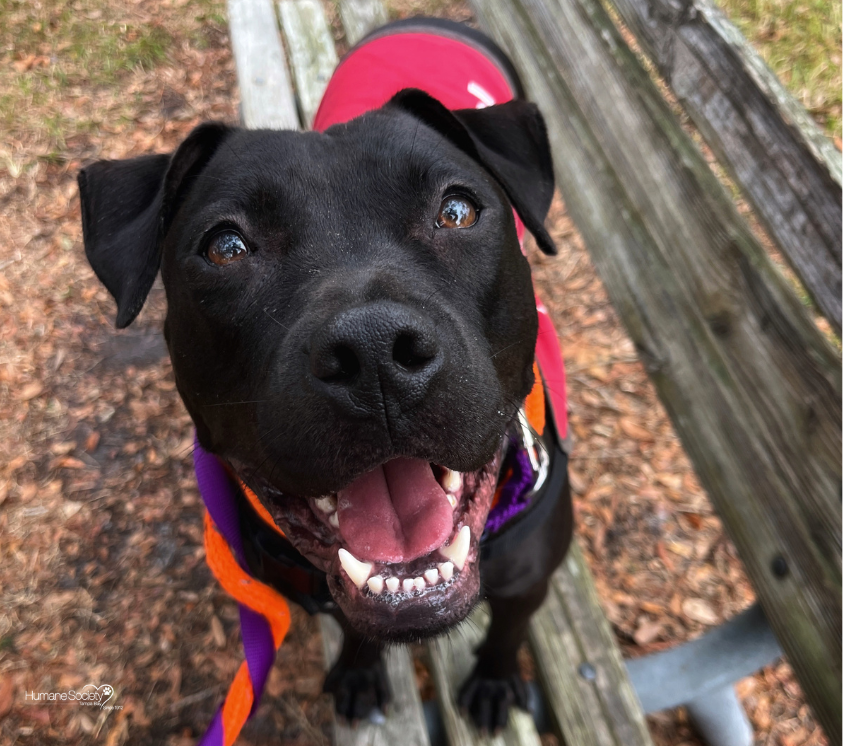On Saturday, May 21st, the Humane Society of Tampa Bay is proud to be a sponsor of the 4th Annual Champions for Change Challenge in Tampa Bay.
The event is hosted by 21 & Change, Inc., a Florida-based non-profit organization that champions inclusion, education, and human rights for people with developmental disabilities.
If you are an amateur, professional, or athlete with developmental disability, register today for FREE and join your family and friends along with the Tampa Bay Buccaneers cheerleaders and mascot, Captain Fear, on Saturday, May 21 from 10 a.m. to 1 p.m. at the Tampa Movement Lab, 1335 W. Gray Street, Tampa, FL 33606 for the Champions for Change Challenge.
The Humane Society of Tampa Bay will have one adoptable dog at the event with a focus on the power of pups with children that have developmental disabilities.

Pets provide companionship for kids who struggle socially.
Pets offer a bond for kids who struggle to make connections with their peers, which can leave them feeling lonely and isolated. Dogs and even cats can be a very good support system; they are non-judgmental, good listeners, stress-relievers, and they cuddle.
Pets reduce stress and anxiety.
Kids with special needs often feel anxiety on another level. The calm demeanor and loving presence of dogs can cause a perceived reduction in stress and cortisol levels in children.
Dogs help kids with special needs stay physically active.
Getting active can be a stress reliever, as well as a mood booster. Pets encourage children to engage in physical activity and spend time outdoors, which is beneficial for healthy lifestyle habits.
Pets can help kids with autism build social skills.
Research has shown that animals increase social behaviors in children on the spectrum. In studies, children with autism were more likely to talk, smile, laugh, and make physical contact with others when they had real pets, rather than toys.
Taking care of an animal helps kids learn responsibility.
Taking care of their pets will help a child with special needs create their own schedule, including when to feed or bathe the pet, and even when it’s time for some fun. This daily routine helps create better habits, such as the ability to make plans, focus and stick to them.
Pets can help kids with physical disabilities with everyday tasks.
Animals can be trained to grab objects, open doors, and guide children with limited mobility or physical impairments.
Support dogs can help with a child with special needs’ well-being.
A fully trained support dog can be taught behaviors such as applying pressure to help with a panic attack or sounding the alarm if
self-harming behaviors are happening.




